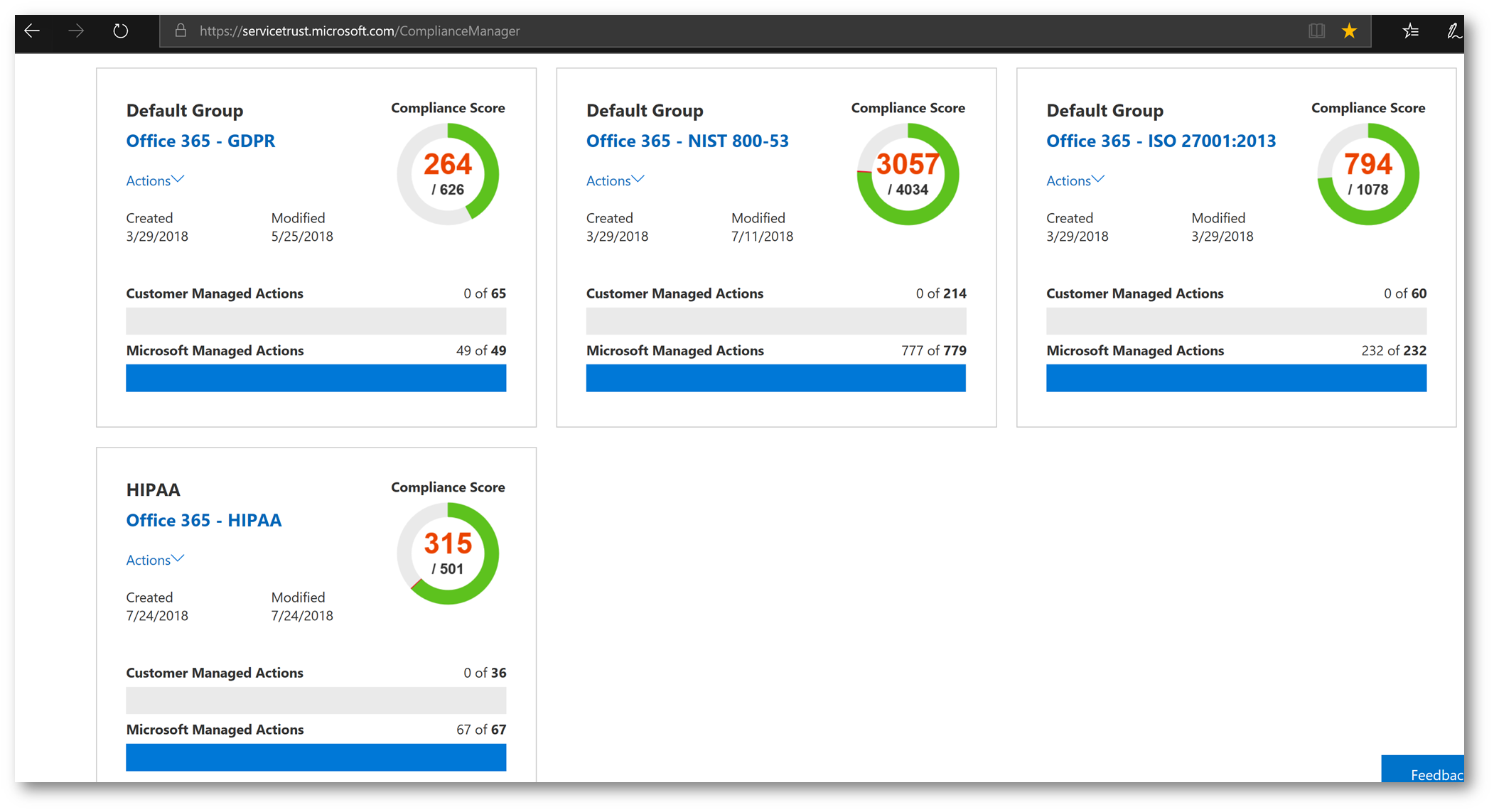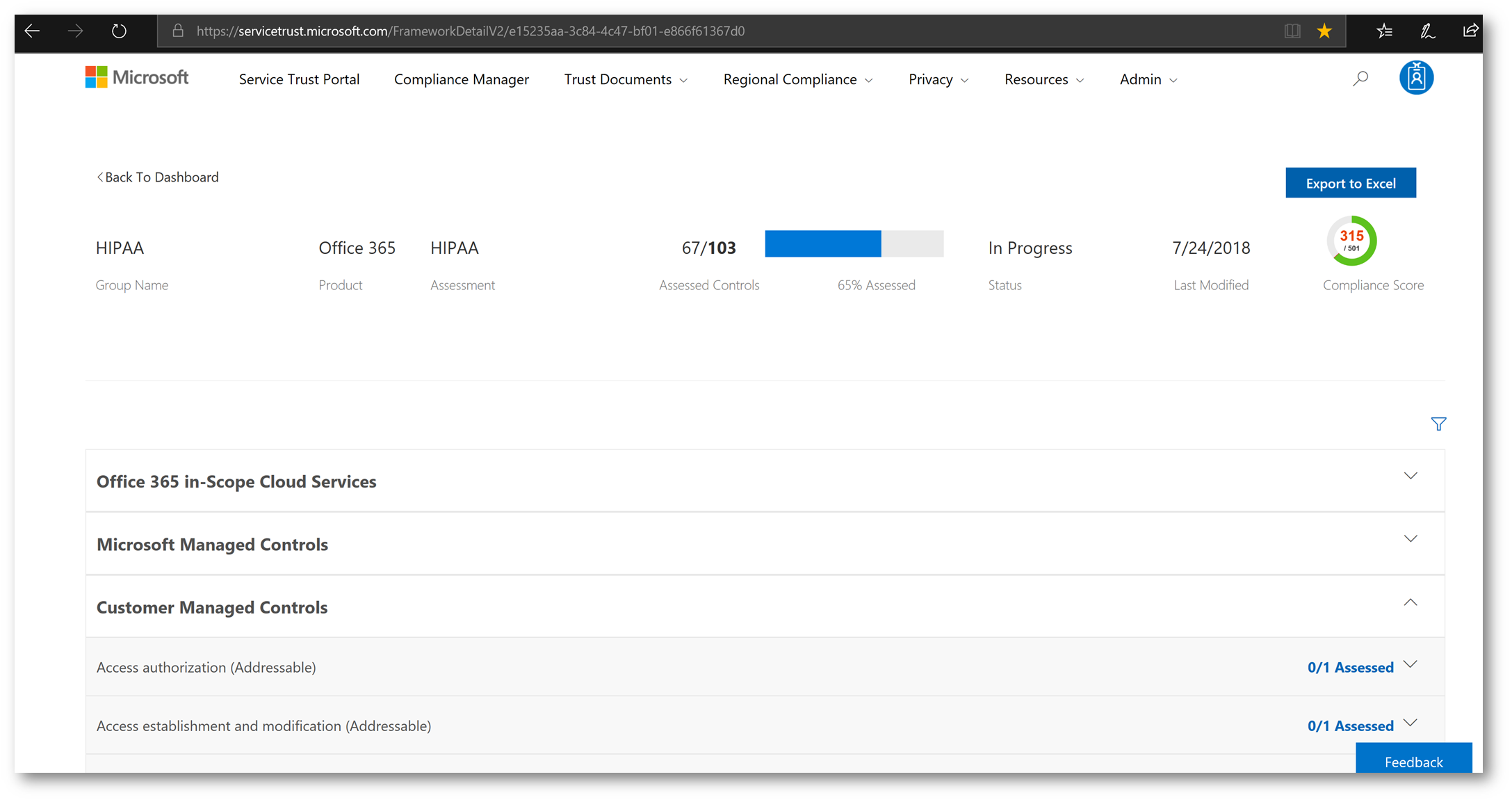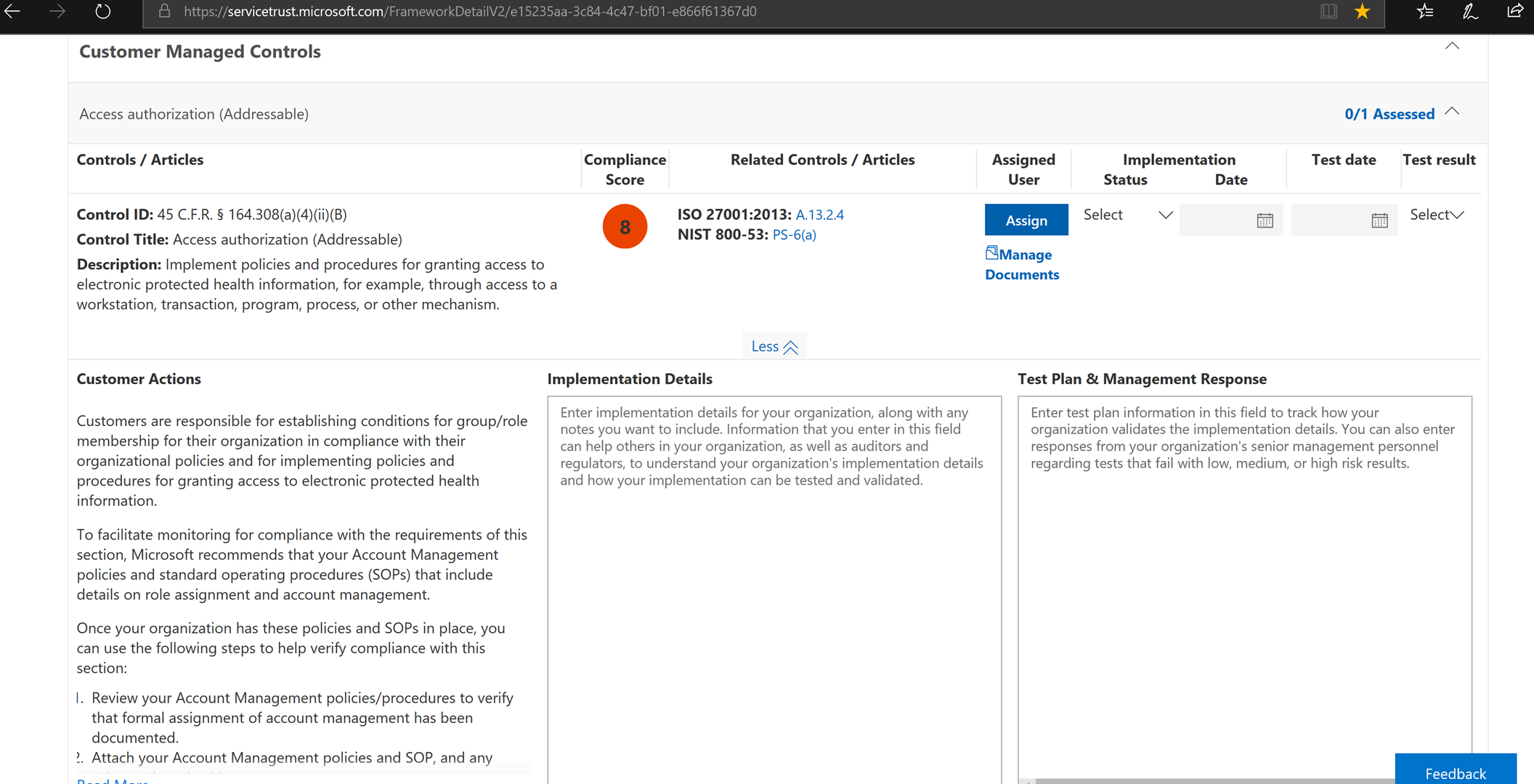Who owns what? The shared responsibility model of cloud and compliance (HIPAA, GDPR, NIST,ISO)
Do you need to meet an industry regulation? Curious what responsibilities Microsoft has as your cloud service provider and what responsibilities you have as a customer when it comes to using Office 365, Azure or Dynamics in compliance with your industry regulation? You may want to look into Microsoft Compliance Manager as a key tool in your compliance journey. Compliance Manager can help to assist in your compliance journey by helping you to understand the shared responsibility model, how each responsibility aligns/maps to the industry regulation, and enabling you with capabilities to then manage your compliance journey. This tool can help you to keep track of risk, verification and documentation as needed
At the time of this writing Compliance Manager can help you with the following:
- Office 365
- GDPR
- ISO 27018:2014
- HIPAA
- ISO 27001:2013
- NIST 800-53
- NIST 800-171
- NIST CSF
- CSA CCM301
- Azure
- ISO 27018:2014
- ISO 27001:2013
- GDPR
- UKNHS
- Dynamics
- NIST 800-53
- GDPR
- Professional Services
- GDPR
Compliance Manager can be accessed via https://servicetrust.microsoft.com/ComplianceManager for existing Azure, Dynamics, Office 365 customers.
IMPORTANT: For the full technical documentation on Compliance Manager see: Use Compliance Manager to help meet data protection and regulatory requirements when using Microsoft cloud services and the Frequently Asked Questions can be found here.
Here is an example view of Compliance Manager's dashboard, where you have visibility into each of your regulations by cloud service:

Clicking on any of the regulations will display the shared responsibility model for that regulation From here I can view what are the Microsoft Managed Controls and what are the Customer Managed Controls that I am responsible for.

Expanding Customer Managed Controls, I can see how each control maps back to the regulation articles (in this example, Access Authorization for HIPAA in Office 365). From here I can read more about actions required of me, enter details on how the control was implemented and how it was tested – including any response. In addition I can see if there are any related controls from other regulations, such as GDPR Lastly, I can assign this control to an owner in my organization to then upload relevant documentation and maintain the implementation date, test date, and test result information.

Conclusion:
Compliance Manager is a fantastic tool to help manage your compliance compliance journey, and may help to enhance your current processes. If you need to comply with a regulation such as HIPAA or GDPR – please check out Compliance Manager! Enjoy!